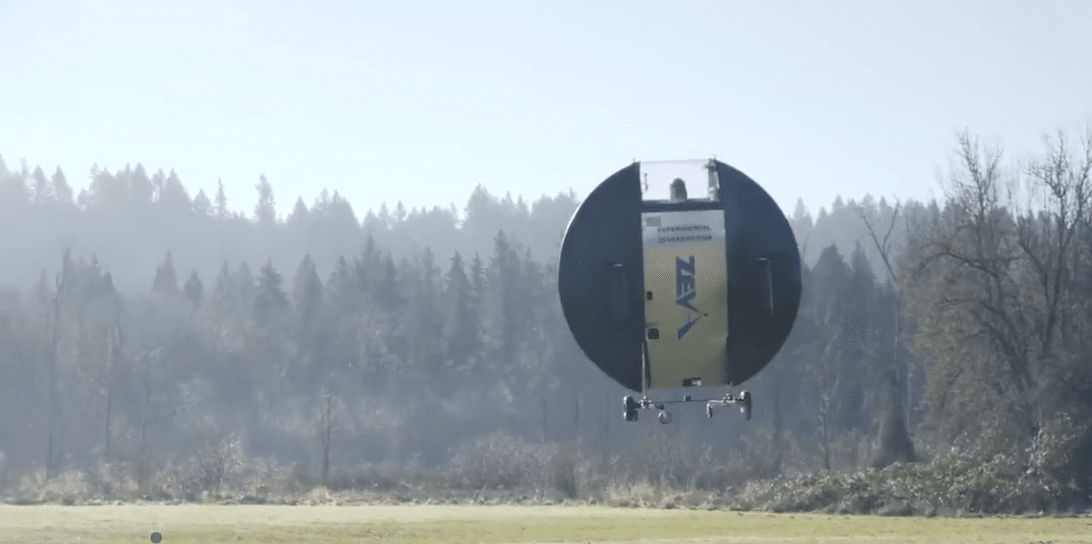ZEVA successfully achieved its first untethered, powered, controlled flight test for its full-scale ZEVA ZERO flying wing airframe utilizing its eight zero-emission electric motor-driven propellers. The major milestone for the Tacoma-based startup occurred in rural Pierce County, Washington, on Sunday, January 9th, 2022 as part of its rigorous test program to achieve FAA airworthiness certification.
The uncrewed ZEVA demonstration aircraft completed four flights, totaling more than four minutes of controlled hovering, simulated taxiing maneuvers at slow speeds, and limited vertical climb maneuvers. Its compact airframe is designed for a single pilot and is small enough to fit in a standard automobile parking space. The vehicle is projected to cruise at speeds of up to 160 mph with a range of up to 50 miles, optimizing point-to-point travel.
“This is a huge inflection point for ZEVA as we join an exclusive set of proven flying eVTOL platforms, and a testament to the relentless hard work and ingenuity of our entire team over the past two and half years,” said Stephen Tibbitts, CEO and Chairman of ZEVA. “We are dissecting our learnings from our critical first taxiing flight, which is a direct result of the support we’ve received from our investors and community, leading us to bring in additional talent to spearhead this historic moment. We are eager to continue to our next stage of hover flight testing on our road to certification and eventual autonomous flight allowing anyone, not just pilots, to access zero-emission point-to-point travel.”
ZEVA experienced tremendous growth this year, with the addition of Gus Meyer as flight control engineer and several other key hires. The team completed more than 50 successful tethered flights, showcased the ZEVA ZERO aircraft at the Dubai Air Show in November, and was awarded a grant by Washington’s Joint Center for Aerospace Technology Innovation (JCATI) to work with Washington State University on ZEVA Aero’s aerodynamic configurations to optimize the vehicle’s thrust and controls. ZEVA has also worked with NASA in conjunction with its Urban Air Mobility Grand Challenge.
“The ZEVA team has done an incredible job with the design and manufacturing of this aircraft, which was evidenced in this exceptionally smooth and successful first flight,” said Gus Meyer, the test pilot controlling the ZERO via a remote radio link. “This achievement is also a testament to the extraordinary talent and experience of the team, and the supportive partnerships that helped make this a reality.” ZEVA will continue hover flight tests and advance to transition flight testing this spring to fine-tune the unique Superman-like trajectory of the aircraft design. The patent-pending design is expected to be available for pre-order for consumers for a $5,000 deposit as early as spring of this year, with an eventual price tag for the first production units estimated at under $250,000.
